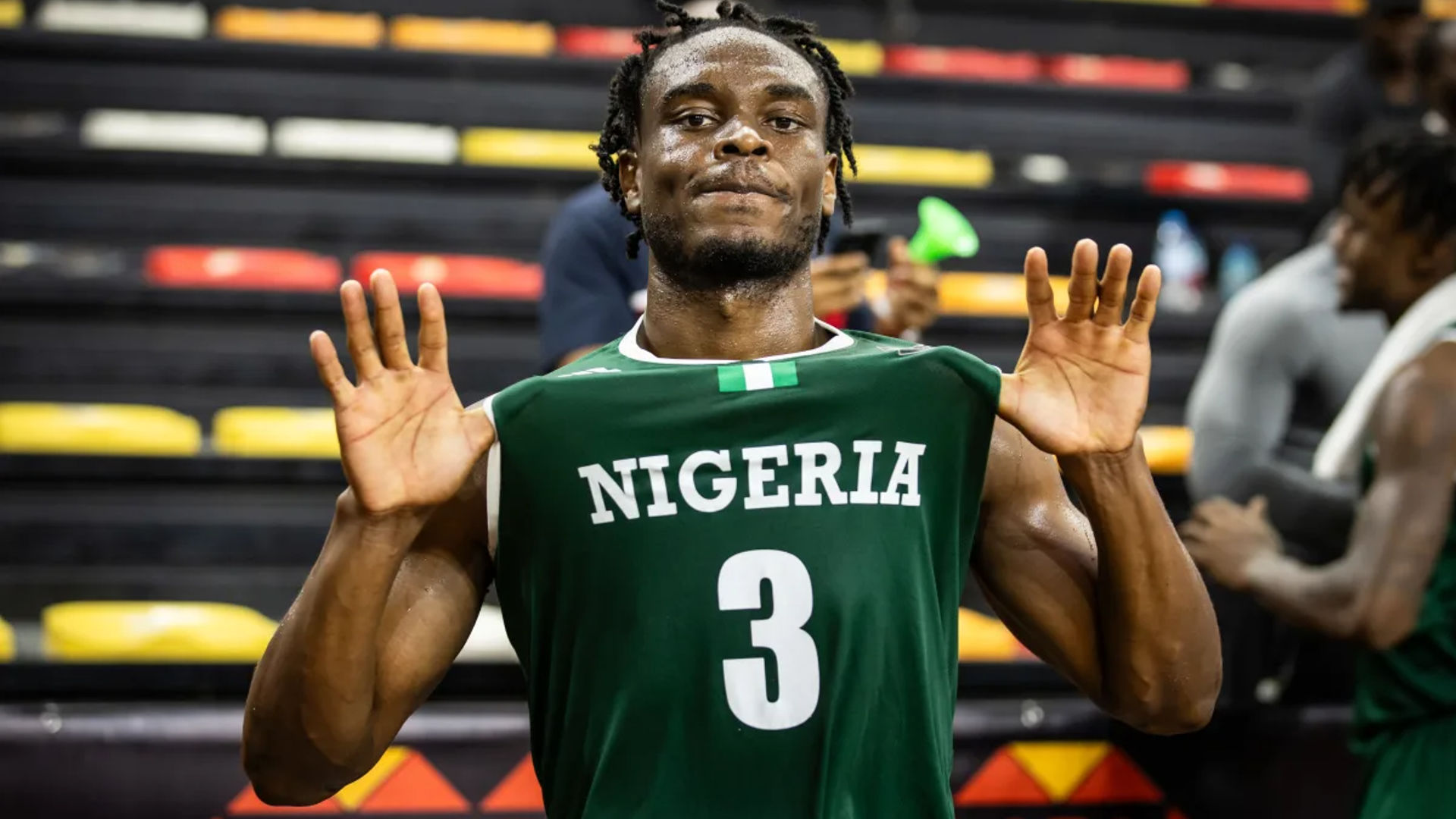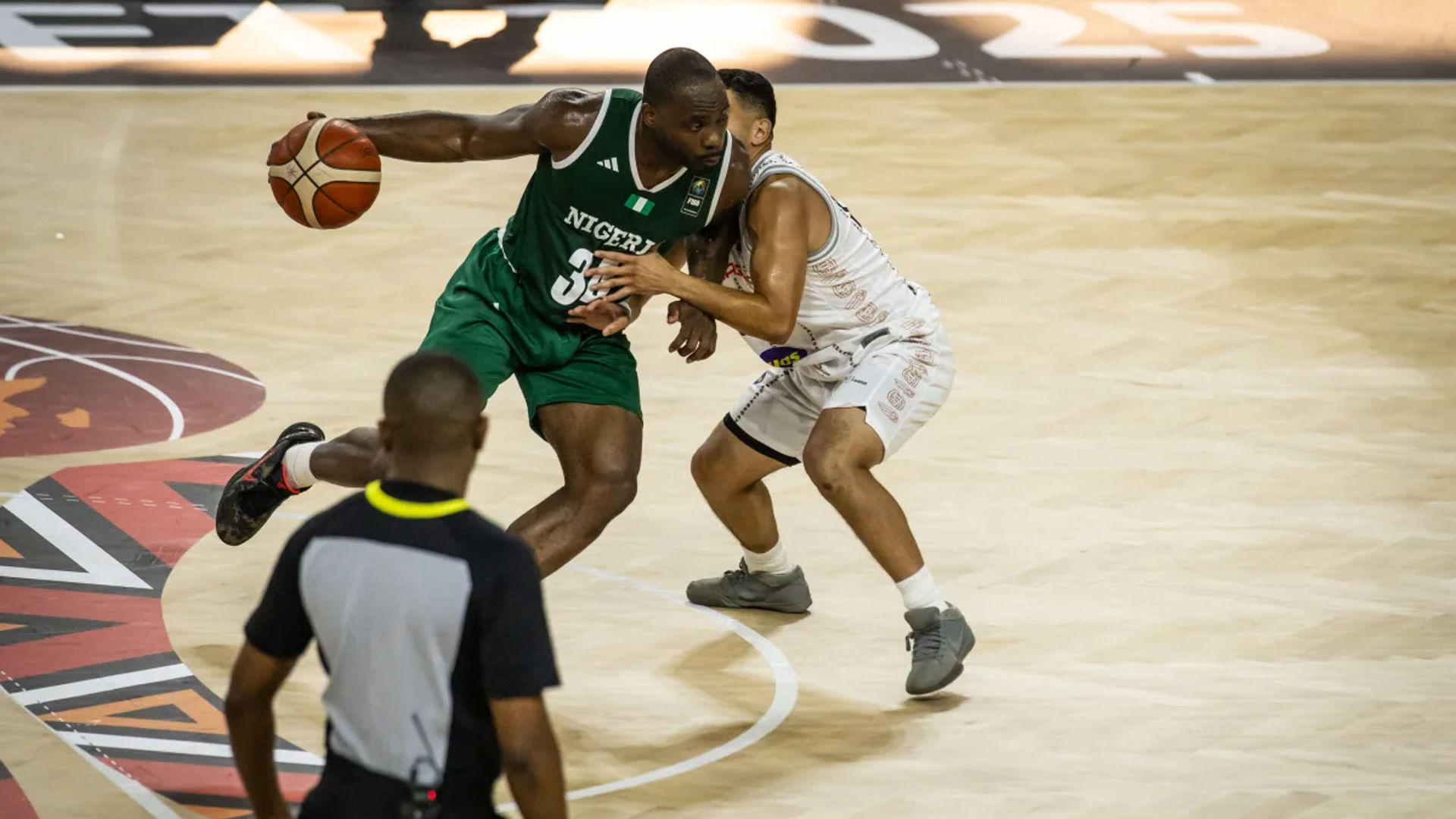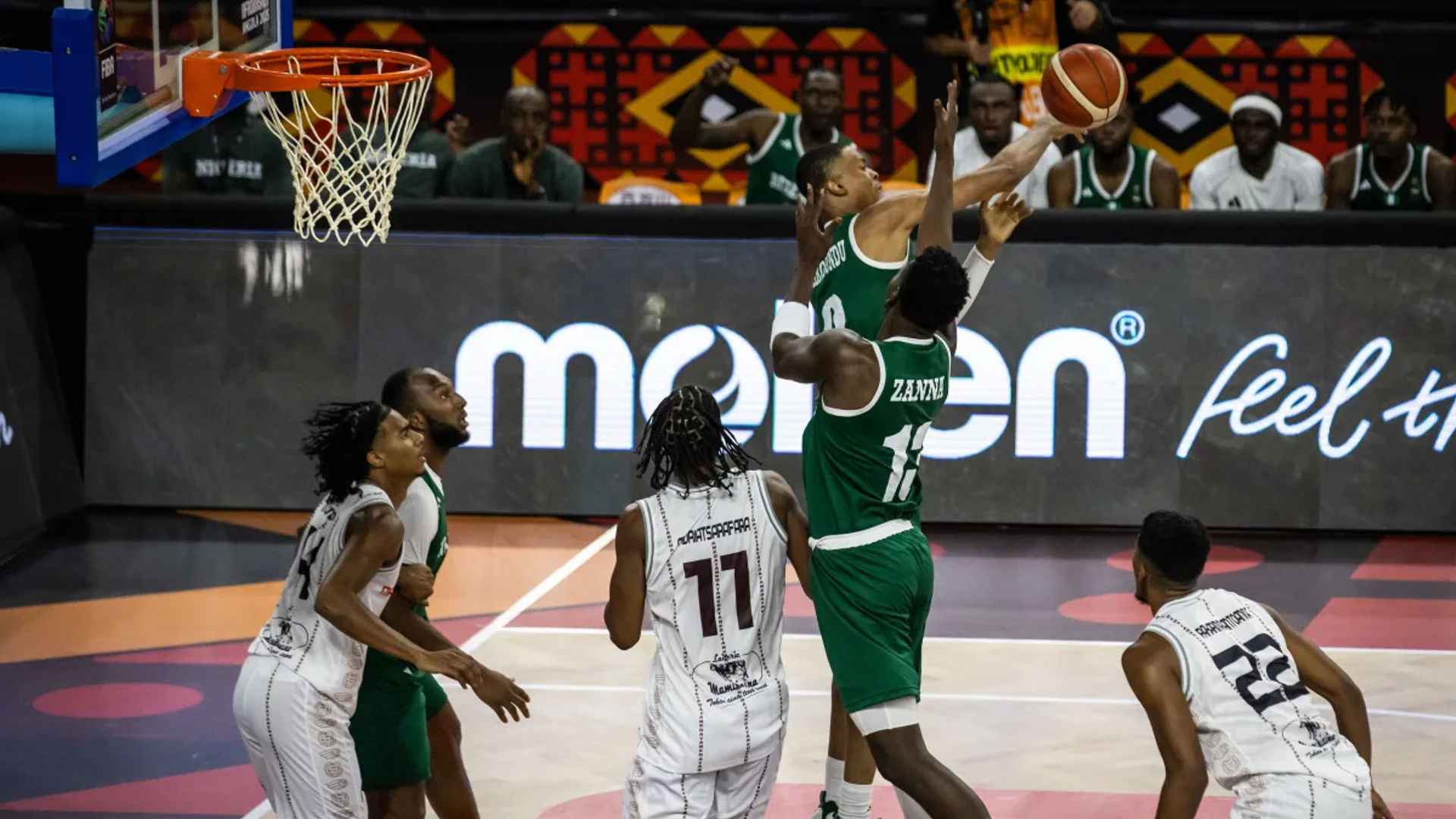Nigeria opened their 2025 AfroBasket campaign with a 77-59 win over Madagascar, who returned after 14 years. Caleb Agada starred, while Madagascar showed promise but faltered in the second half, highlighting a gap to bridge.
Last Updated on
August 13, 2025
.jpg)
Day 2 of the 2025 AfroBasket brought a special moment as Madagascar made their long-awaited return to FIBA Africa’s premier tournament, squaring off against a powerhouse Nigerian side at the Pavilhão Multiusos de Luanda in Angola.
It had been 14 years since these two nations last met—back in 2011, when Madagascar played host and Nigeria cruised to a 112-81 victory. This time, the D’Tigers once again proved too strong, claiming a 77-59 win over the islanders and reinforcing their pedigree on the continental stage.
Nigeria wasted no time stamping their authority, opening with an 18-14 first-quarter edge. Caleb Agada sparked the action just 15 seconds in, but Madagascar’s Sitraka Raharimanantoanina responded immediately with a three-pointer. Agada answered right back from deep, setting the tone for a fiercely contested first half.
Though Nigeria held a narrow lead in the second quarter, Madagascar found rhythm and hit their best scoring stretch of the game, closing the gap to just one point at halftime, 38-37. But the second half told a different story, as the D’Tigers shifted gears and pulled away for a comfortable victory.

However, the third quarter proved to be the turning point. Nigeria unleashed a 17-9 run, effectively dismantling the islanders’ momentum. The final stanza mirrored the previous quarter, with the D’Tigers finishing strong on a 22-13 run, leaving Madagascar unable to mount a comeback.
Nigeria's balanced roster played a significant role, but one standout player emerged: Caleb Agada. In 25 minutes and 32 seconds on the court, he scored 22 points, hitting 2-of-5 from three-point range and 8-of-11 on two-point attempts, while adding seven rebounds and three steals.
Supporting Agada were Stan Okoye (13 points, five rebounds), Ike Nwamu (12 points, five rebounds), and Kaodirichi Akobundu-Ehlogu (10 points, six rebounds), all contributing key plays on both ends of the floor.
Madagascar, despite the defeat, showed flashes of promise. Raharimanantoanina led the side with 20 points and four rebounds, while Kiady Razanamahenina (13 points, two rebounds, three assists) and Mathias M’Madi 11 points, three rebounds, two steals starred for the Islanders.

On the stat sheet, Nigeria clearly held the edge. In terms of numbers, Nigeria moved the ball better, with 16 assists and 44 points in the paint, compared to 22 for Madagascar. The D’Tigers’ bench was also more productive, contributing 24 points versus just 11 for the Ankoay.
Madagascar coach John Douaglin reflected on the challenges his team faced.
“We must be able to replicate over 40 minutes what we did in a good first half. Offensively, there is a gap. But defensively, it’s not catastrophic.”
His player Kiady Razanamahenina added:
“I think Nigeria stepped up their defense in the second half. It threw us off and led to many turnovers. They scored 21 points off our mistakes. We need to manage that better in the upcoming games.”
Nigeria’s coach Abdulrahman Mohamed acknowledged his team’s start-and-stop rhythm in the first half.
“We were a bit sloppy in the first two quarters, giving up too many points in transition. In the third quarter, we made the necessary adjustments, making sure they didn’t get second chances. We had players making great plays. The team has solid chemistry; they’ve played together for a long time. Everyone gets a chance on the court. This is how we’re going to keep moving forward. Madagascar is a young team.”
For Agada, the win was also personal.
“It’s been a long journey getting here, with ups and downs. I’ve learned a lot from my time in other countries,” he said. Looking ahead to their next challenge against Tunisia on Friday, he remained cautious but confident: “They will try to bully us, but as long as we can respond, it’s going to be okay. Hopefully, it will be a win.”
Nigeria’s first win at the 2025 AfroBasket not only highlighted their depth and versatility but also sent a clear signal to the rest of the field: the D’Tigers are serious contenders.
Their ability to adjust mid-game, dominate the paint, and leverage a productive bench showed a team built for consistency. Meanwhile, Madagascar’s return after 14 years, though ending in defeat, carried its own significance. The islanders demonstrated they can compete, particularly with their sharpshooting and the individual brilliance of players like Raharimanantoanina.

The historical angle added further intrigue. Back in 2011, Nigeria had overwhelmed Madagascar on the same stage, and this latest encounter reaffirmed a trend but also showcased a narrowing gap.
With more experience and time together, Madagascar has the potential to challenge stronger sides in future tournaments. For now, however, it is Nigeria who leaves Luanda with their first victory, buoyed by a mixture of veteran leadership, youthful energy, and a performance that balanced tactical discipline with individual flair.
As the tournament progresses, both teams face critical lessons. Nigeria will look to maintain their momentum and refine their early-quarter starts, while Madagascar must find ways to sustain the intensity for 40 minutes and protect against turnovers. The clash of experience versus emerging talent, combined with the psychological weight of past encounters, sets up an AfroBasket that promises both drama and high-quality basketball in the coming days.
[Photography/Imagery : Courtesy of FIBA]